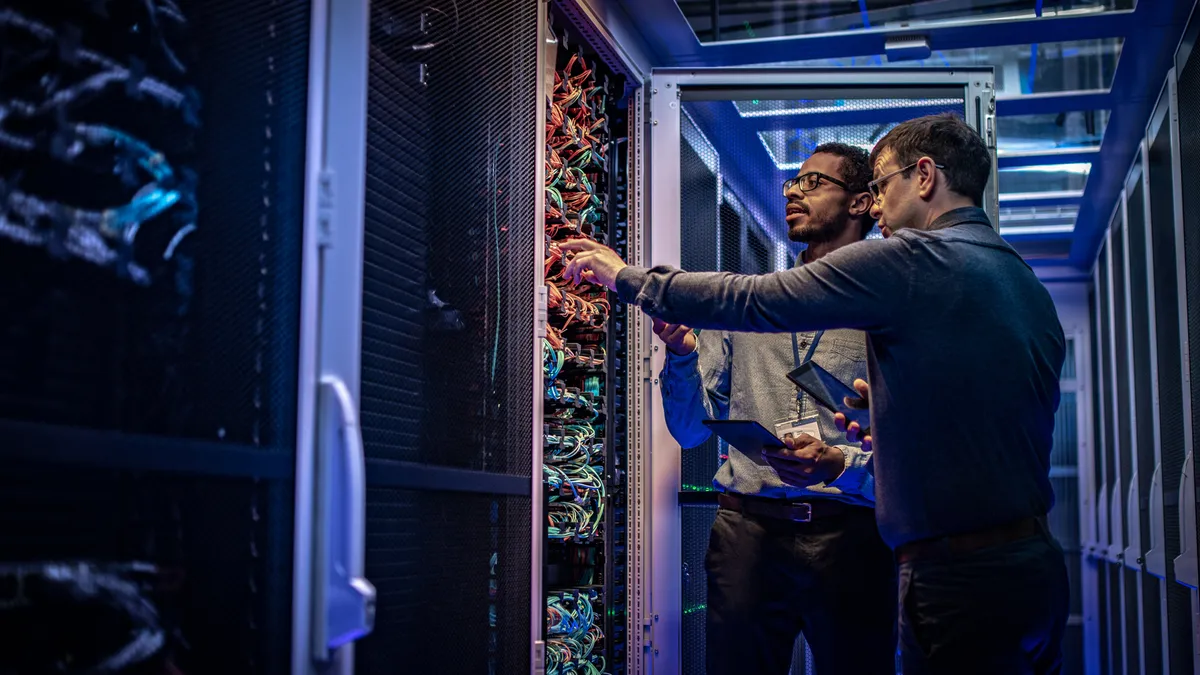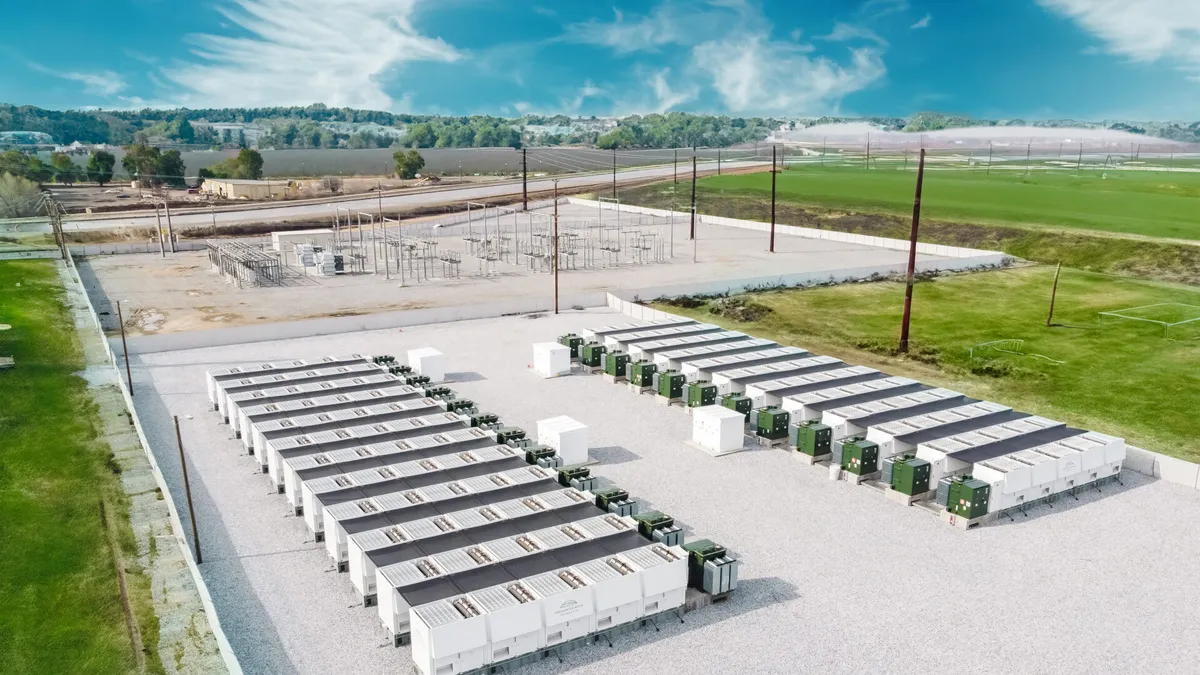Dive Brief:
- The governing body of the iMasons Climate Accord — a digital infrastructure climate coalition — is calling on data center suppliers to begin disclosing the lifecycle emissions of their products and infrastructure to increase transparency and accelerate sector decarbonization.
- The governing body — which includes digital infrastructure leaders Amazon Web Services, Google, Meta, Microsoft and energy management company Schneider Electric — signed an open letter Tuesday asking data center suppliers to adopt Environmental Product Declarations. These standardized and third-party verified reports help provide quantitative information about a product’s environmental impact, from its raw materials to its end of life, similar to nutrition labels for food products.
- The group said that since a large percentage of the emissions produced by data centers or hyperscalers — large-scale data centers with massive computing resources — are scope 3 emissions, Environmental Product Declarations are a “critical tool” to measure the emission of digital infrastructure, according to the letter.
Dive Insight:
The governing body of the iMasons Climate Accord initiative — which also includes data center services company Digital Reality and digital infrastructure nonprofit Infrastructure Masons — believes the widespread adoption of environmental product certificates by the data center supply chain will allow operators of those facilities to effectively calculate the impact of their scope 3 emissions and choose products to help address it.
Scope 3 emissions can represent between 38-69% of a data centers’ total carbon footprint, according to Schneider Electric. The climate coalition governing board’s open letter said data center companies will not be able to address their embodied emissions — or those from manufacturing, transporting and constructing the digital infrastructure — until they are first able to estimate and establish a baseline measurement of those carbon emissions.
The push for EPDs comes as the digital infrastructure is increasingly looking to lower the carbon footprint of data centers. Anna Timme, head of sustainability for secure power and data centers at Schneider Electric, said promoting industry-wide adoption of the digital infrastructure nutrition labels is “a critical step in enabling carbon-informed decision making.”
"To enable the digital infrastructure industry to align with net-zero emissions goals, carbon emissions must be a fundamental consideration in procurement decisions,” Timmons, also a governing body member, said in the release.
There are currently not enough vendors producing EPDs for their products, which makes it harder for the industry to buy lower-carbon materials and reflect “vendor emissions reductions” when reporting to key stakeholders, per the governing body.
The lifecycle analysis would include the emissions generated by the extraction, transportation and processing of raw materials; manufacturing; transportation; the product’s use; and product disposal. Miranda Gardiner, executive director of the iMasons Climate Accords, said the standardization and verification required will give the industry a layer of transparency.
“EPDs are crucial in transforming the future of digital infrastructure to be more resilient and climate positive,” Gardiner said in a press release. “The adoption of EPDs within the global supply chain fosters both sustainable and accountable outcomes.”
The group said members of the climate coalition are already using EPDs to track embodied emissions in data centers, but need vendors to publish more of them for the materials and equipment used to construct and operate data centers. The open letter calls for suppliers to create verified EPDs that are readily available and disseminated in common third-party databases.
“By taking these actions, our supply chain vendors will improve the transparency of digital infrastructure embodied emissions, support our GHG estimation and reporting, and help ensure we are positioned to meet our climate goals via more informed green procurement as we develop the digital infrastructure of the future,” the letter ends.
The iMasons Climate Accord was created by Infrastructure Masons in 2022. The organization has more than 250 members that represent data centers, networks, cloud computing energy and cybersecurity companies.















